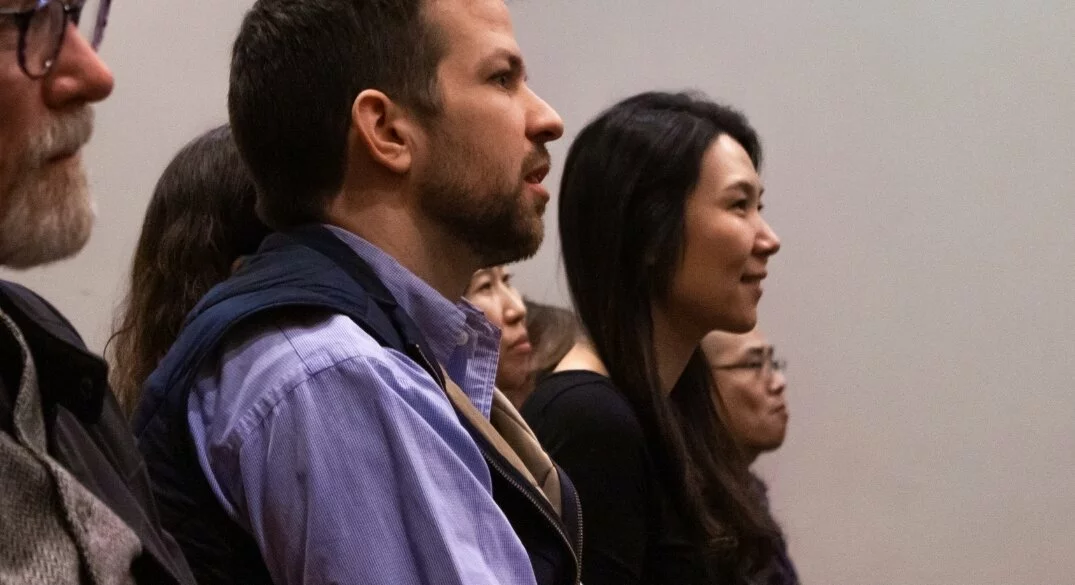
Projects
The Henry Center promotes theological understanding through a variety of projects and covering a wide range of topics—all dedicated to the advancement of wisdom in the evangelical church and academy.
Some projects recur annually and others are terminal. Check out our currently active programs and initiatives below, or scroll further down for our “legacy” projects to learn more about what we’ve been up to in the past.
Christ on Campus Initiative
Christian students are bombarded daily with conflicting messages. Their church or parents may encourage them to think in a way that directly contradicts their peers, professors, and media diet. The Christ on Campus Initiative (CCI) was established to provide academically sound resources for students which help balance the scales by voicing reasonable, firm, and nuanced evangelical stances. For more information, you can visit the Christ on Campus Initiative’s website.
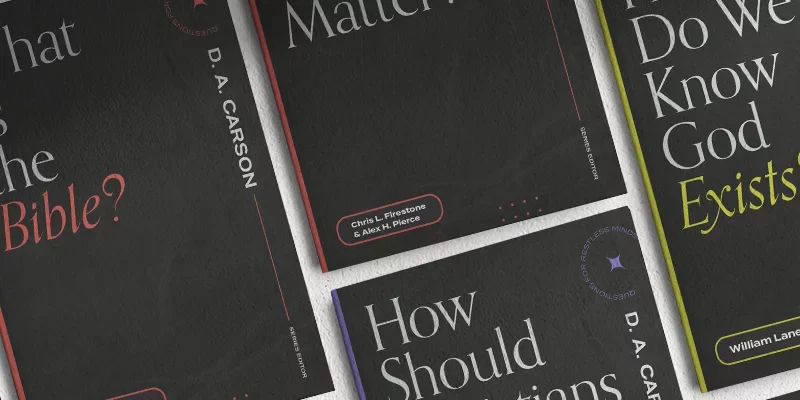
Deerfield Dialogue Group
The Deerfield Dialogue Group (DDG) is a discussion group that brings TEDS faculty together for regular theological conversation. Four annual meetings take place in the homes of seminary faculty members, during which TEDS professors provide feedback on each other’s research before publication or presentation. These meetings not only promote better scholarship, but encourage faculty members to stay in touch with the research and publications of their colleagues from other disciplines. This regular interaction guards against tunnel vision, reminding faculty to participate in conversations outside their usual academic boundaries.
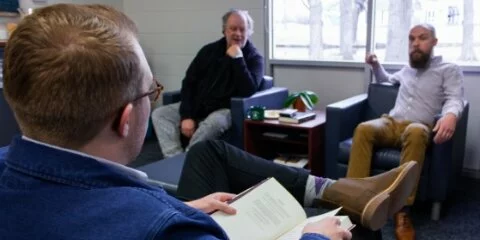
Hansen Fellowship
The G. Walter Hansen Fellowship supports three PhD students whose vocational interests and academic research focus on yielding more faithful and effective strategies for biblical-theological ministry, creating a global culture of collaboration among evangelical ministers of the Word.
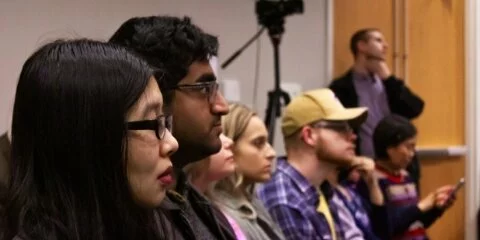
Kantzer Lectures
These lectures are named after former TEDS dean and theological visionary, Kenneth Kantzer. Previous years have featured John Webster, Nicholas Wolterstorff, and Bruce McCormack, among others, and have covered a range of topics, such as divine presence, election, and liturgy.
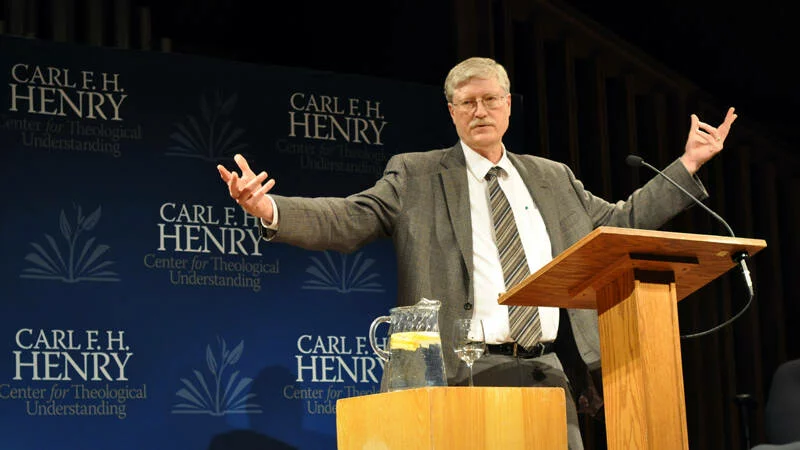
Legacy Projects
Since our founding, the Henry Center has existed to support, both administratively and financially, various initiatives of the Trinity Evangelical Divinity School faculty that are collaborative in nature and addressing pressing needs of the church. Below, you can read summaries of the projects we have executed over the years as we seek to advance Christian wisdom in all areas of life and thought.
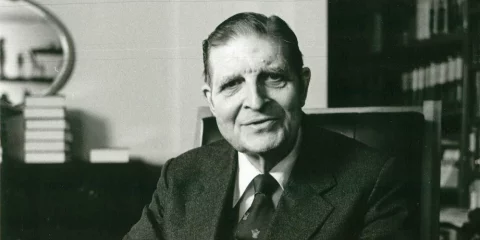
The Creation Project
Are science and the Bible fundamentally opposed in regards to understanding creation? This academic initiative sought to humbly engage with the complexity of modern science while rediscovering the historical and theological core of the doctrine of creation. The Creation Project was a gigantic undertaking—one of the HCTU’s largest ever—which encompassed six years and five far-reaching programs. Although this topic was certainly controversial, the Center remained dedicated to fostering intellectual humility and an eager desire for understanding.

Emerging Adulthood Consortium
As the world moves faster and generational gaps grow wider, many older ministers struggle to develop meaningful relationships with younger congregants. Individuals in their late teens and twenties face a complex landscape, one which is foreign to many outside their age bracket. By connecting with emerging adults, pastors not only learn how to serve this rising generation, but also how to equip young churchgoers to be agents for change. This 2015 project, led by Trinity Professor Deb Colwill, combined a conference and doctoral research grant program, both of which focused on building bridges between emerging adults and their church communities.
The Gospel Coalition
In 2006, TEDS Professor D. A. Carson approached the Henry Center hoping to establish a network which could help recapture the center of confessional evangelicalism. The HCTU financially assisted TGC as they planned a conference, filed for non-profit status, and launched their own website. In 2007, a year after the group’s inception, TGC hosted a conference on Trinity’s campus which drew together a wide range of pastors, theologians, and church staff. Although TGC was formed with the Henry Center’s funding, they began as, and have remained, an independent organization which is unaffiliated with Trinity International University.
Globalizing Theological Education
Trinity Evangelical Divinity School has trained hundreds of international students since its founding. This project studied practical ways that professors could restructure their classroom environments to support students with non-American educational backgrounds. Educators and experts gathered together on Trinity’s campus for workshops, discussing which methods and structures might be useful in a diverse classroom setting. These gatherings paired participant experience with research and dialogue, producing specific plans of action for TEDS professors.
The HANA Project
The Hispanic and Asian church communities in North America share a lot in common. Both have felt the hardships that affect minority groups in the United States, such as discrimination and diminished cultural identity. Both have also experienced God’s enduring providence in distinct ways. The HANA (Hispanic-Asian North American) Project was instituted by Trinity Professor Peter Cha in order to bring these two ecclesial communities together. The initiative’s leadership team sought to reflect on the two communities’ unique stories and discover ways they could partner together in ministry. The Henry Center provided funding for this project in partnership with the Catalyst Leadership Center.
Remembering Carl Henry
Carl F. H. Henry was one of the founding architects of the modern evangelical movement in the United States. In honor of Carl Henry’s would-be centennial birthday, we celebrated our late namesake with a rigorous one-day conference. This 2013 gathering boasted a collection of speakers both young and experienced who spoke on Henry’s life, vision, and impact.
Scripture Project
In evangelical Christianity, few doctrines are as foundational as the authority of scripture. However, in society at large, the Bible is questioned now more than ever. This project produced a set of essays on the doctrine of Scripture, culminating in the publication of The Enduring Authority of the Christian Scriptures. A group of thirty-eight scholars contributed, writing in the heritage of informed confessionalism on a wide range of topics. The first drafts of the essays were completed when the contributors convened for a private conference before the summer of 2010, during which they worked over one another’s papers. Suitably revised, these papers were compiled and edited by D. A. Carson, then published by Eerdmans in 2016.
Witchcraft Accusations
In many African Christian communities, health issues, death, infertility, and financial problems are widely attributed to “witches” thought to be acting through evil occult power. Those accused of practicing witchcraft are typically older women, orphans, or individuals with mental or social difficulties. Accusations often lead to severe social or physical harm. The Witchcraft Accusations project, led by Trinity Professors Robert Priest and Tite Tiénou, was the first unified Christian response to this widespread crisis, leading to a 2013 international conference in Nairobi as well as countless essays, blog posts, and books.
Woodbridge Conference
Since its birth, evangelicalism has had its own unique perspective on global missions. Officially titled “The Great Commission: Evangelicals and the History of World Mission,” this 2006 conference discussed evangelical missiology in honor of Dr. John Woodbridge, who has dedicated much of his professional career to this field of study. The gathering resulted in a book of the same name which compiled speakers’ writings into a volume edited by Trinity Professors Martin Klauber and Scott Manetsch.